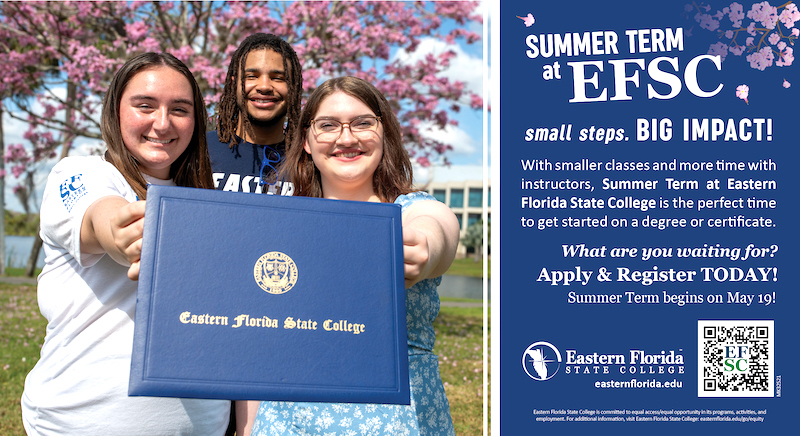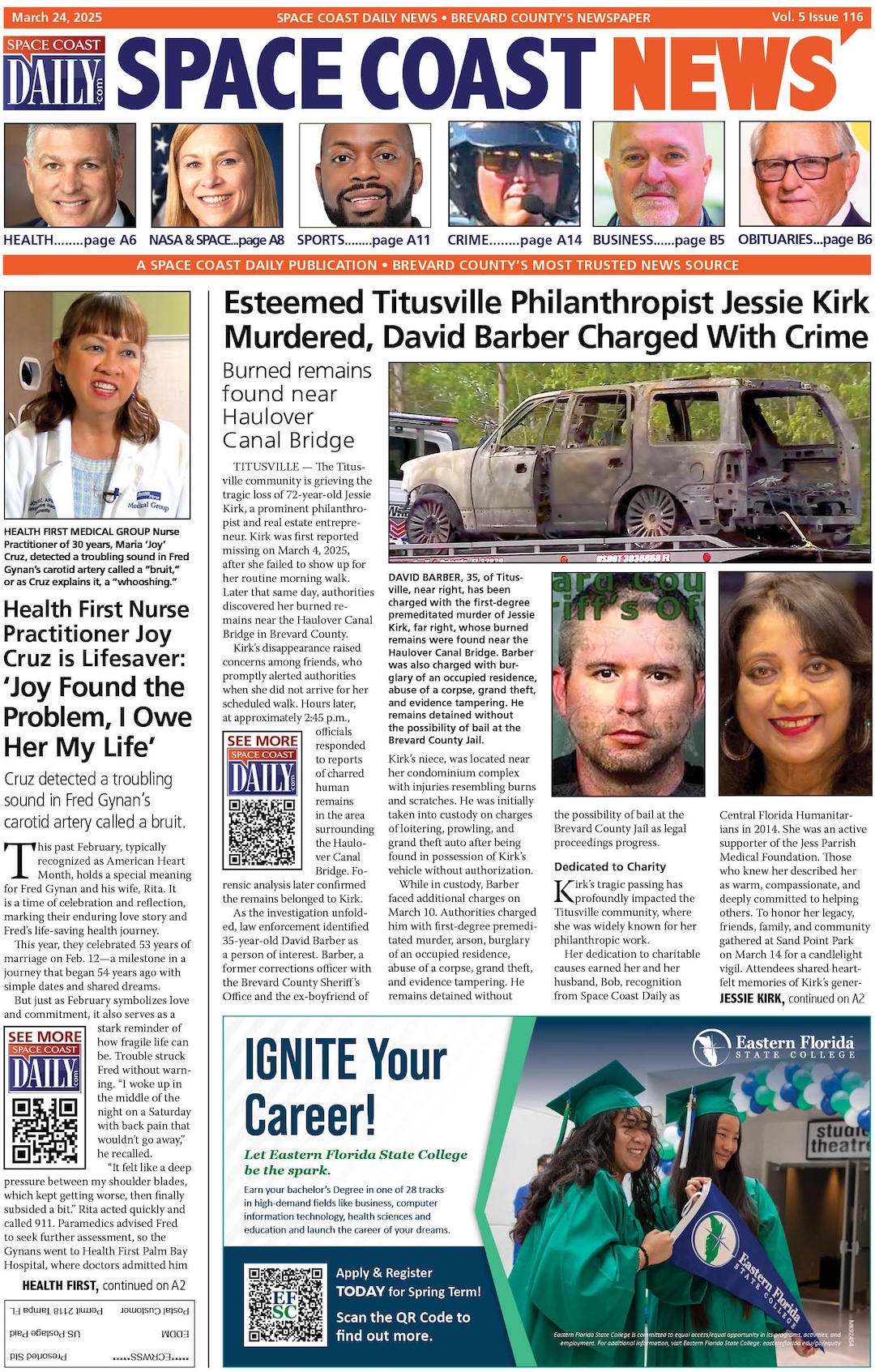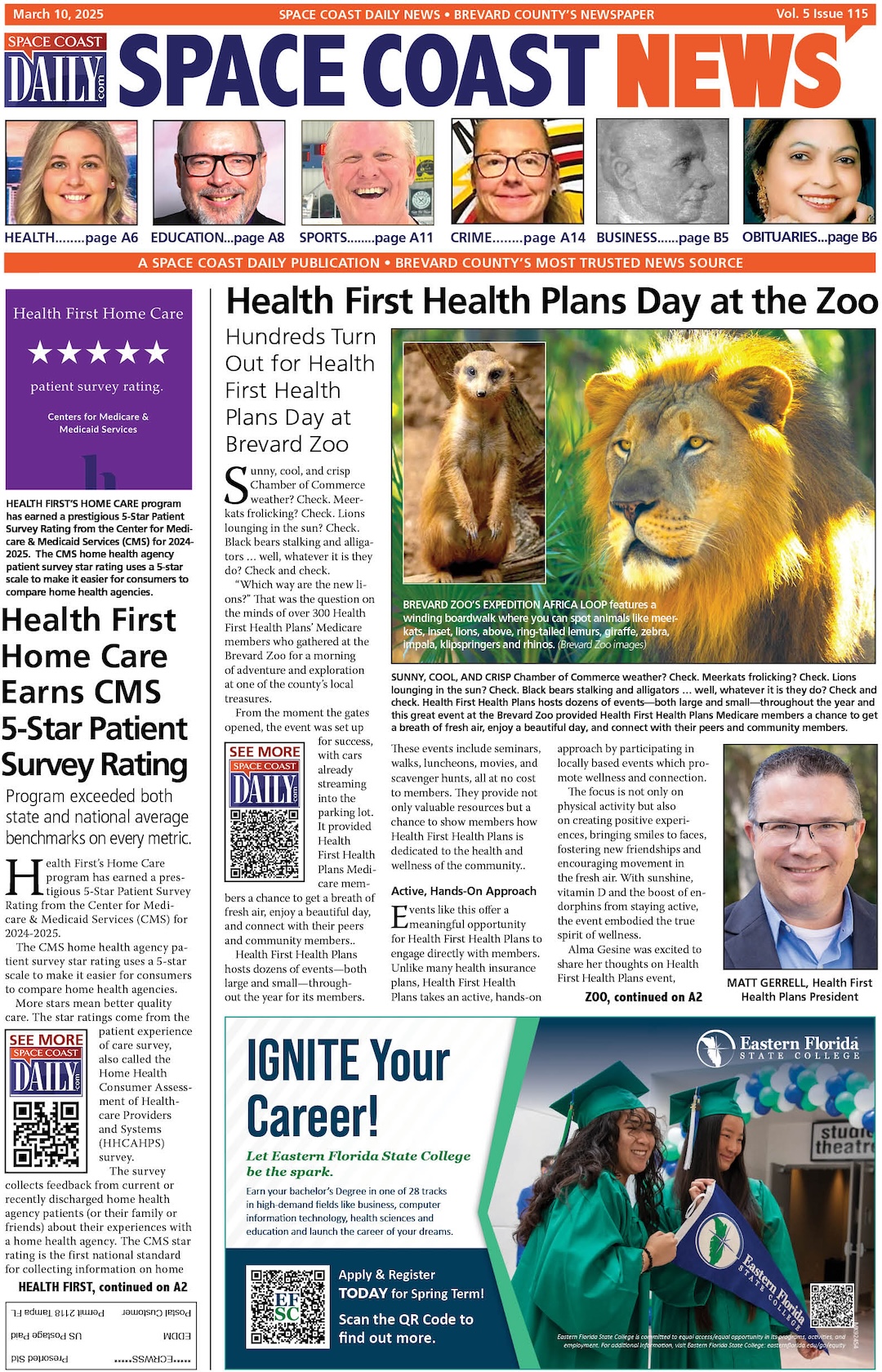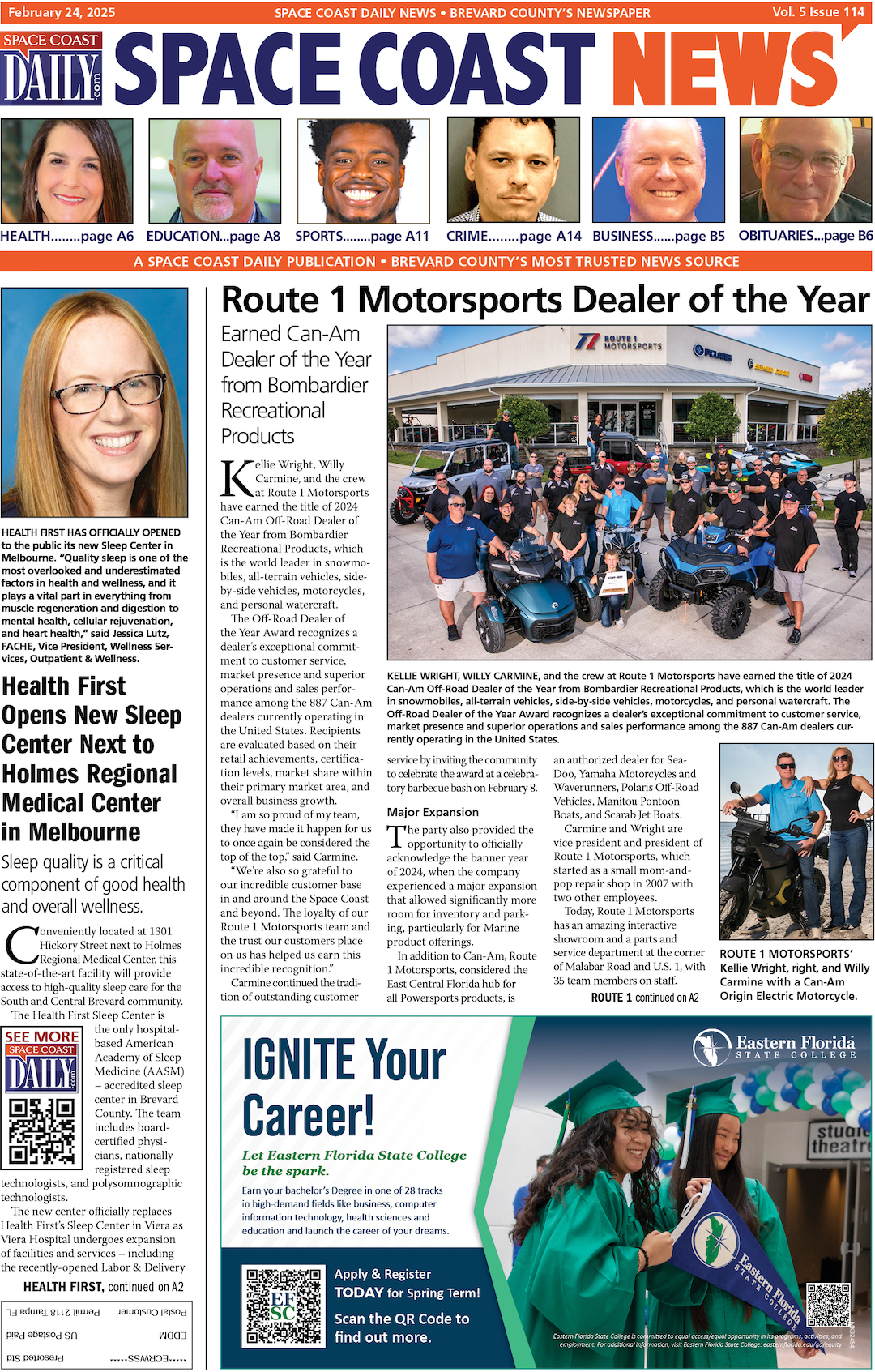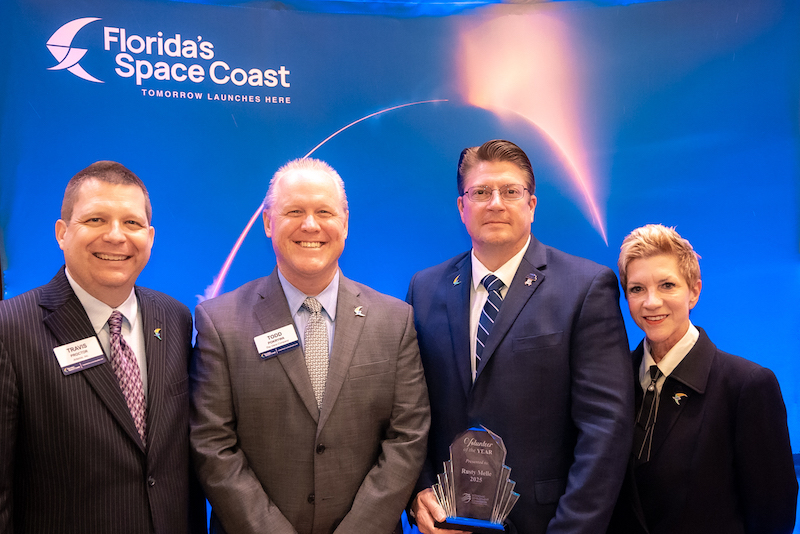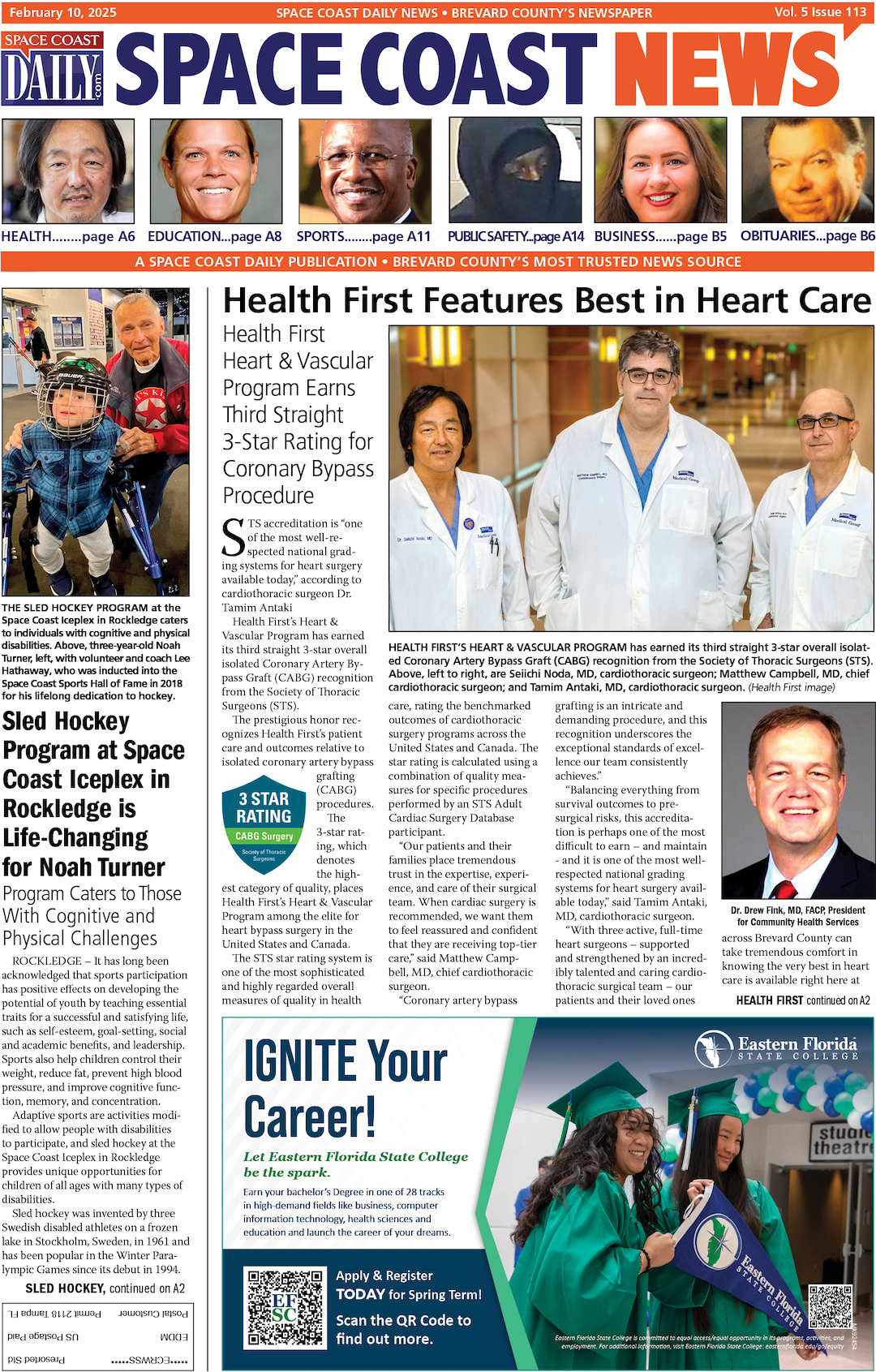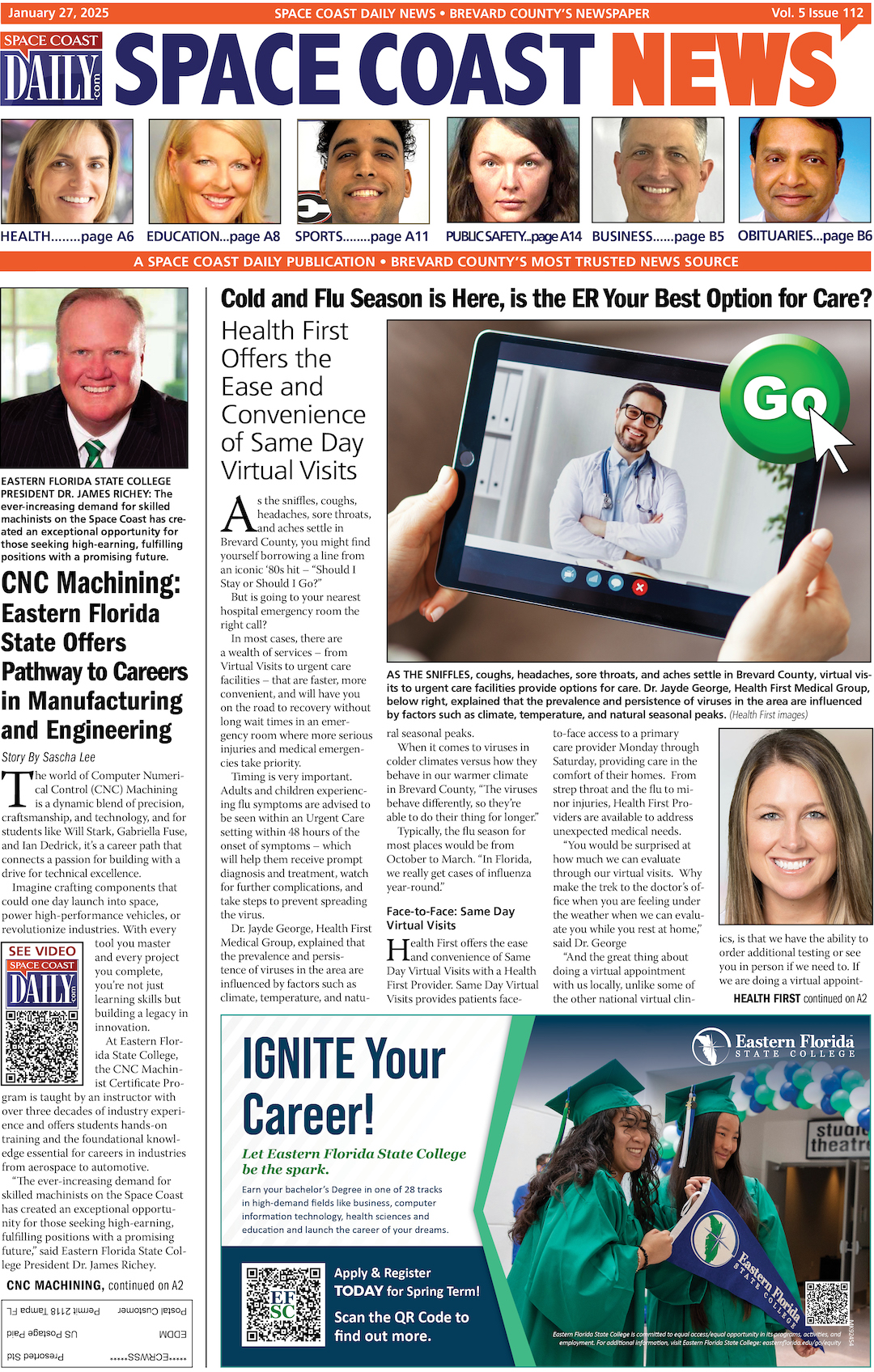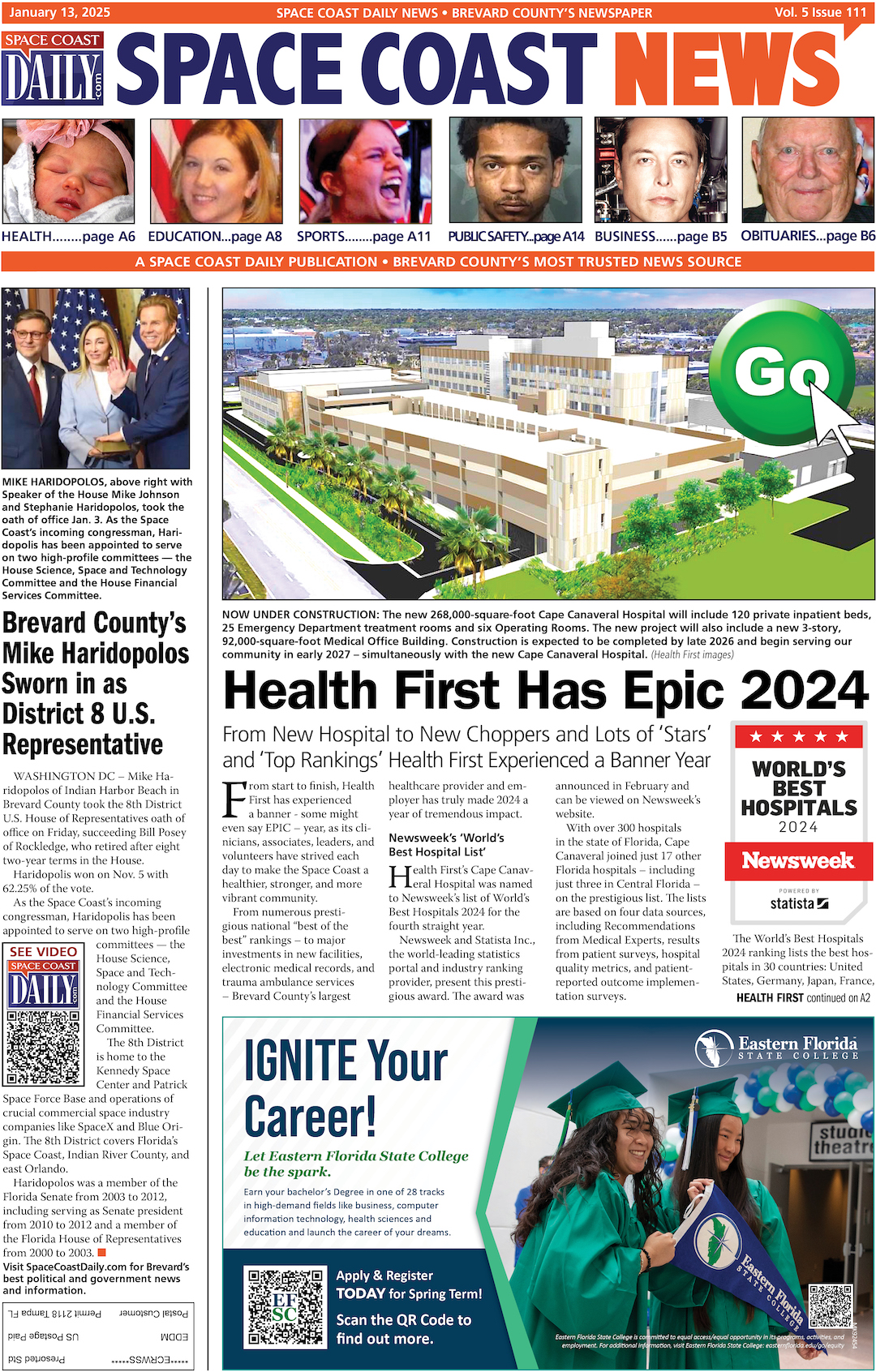MEDICAL SPOTLIGHT: Life-Saving Stroke Care? Health First Has an App for That.
By Space Coast Daily // June 16, 2022
Last year, Health First onboarded Viz LVO from the company Viz.ai

For Shalayma Cruz, a young mother, everything was on the line when she was rushed to Holmes Regional Medical Center for stroke care. She was fortunate. Her operation and recovery were hastened by new technology that spotted her blockage and alerted specialists.
BREVARD COUNTY, FLORIDA – Today, Shalayma Cruz of Melbourne is back at work, back to being “Mom” to a high-speed 3-year-old – her speech, facial expressions and movement almost fully recovered following a large-vessel occlusion (LVO) in her brain.
It’s hard to believe, doctors say. Shalayma can hardly believe she had a massive stroke at her age.
Her case is about the importance of family history in predicting a stroke, but her recovery is about Health First’s continual investment in lifesaving technology. In this case, artificial intelligence.
Last year, Health First onboarded Viz LVO from the company Viz.ai – artificial intelligence-based software over smartphone that’s integrated into the health system’s computed tomography (CT) brain perfusion studies. Viz LVO determines which studies indicate stroke, then alerts the stroke team at Holmes Regional Medical Center.
“When a blocked artery occurs, the brain is not getting any blood flow. It dies essentially immediately,” says Health First’s Interventional Neuroradiologist Dr. Fawad Shaheen.
“Using Viz.ai has shaved critical minutes off our treatment times, and that’s not all,” says Nancy Mettner, Neuroscience Hospitalist Operations Director, Holmes Regional.
“After Viz.ai, we’re seeing patient’s hospital length-of-stay shortened by days, and their performance on speech and motor skills tests in recovery are twice as good.”
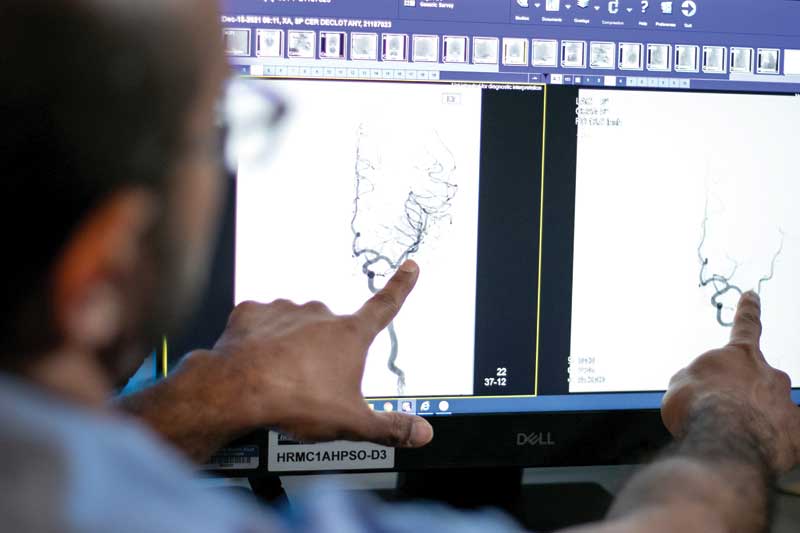
An Unexpected Trip to Holmes
The morning of Dec. 15, Shalayma was in a rush and skipped breakfast. By 7:30 a.m., she was pulling “car duty” for her school when she “felt a dizziness.” She grabbed a wall to steady herself, but fell.
“I’m a very healthy person. I work out, eat healthy – I’m 35. I never thought it would happen to me.”
A coworker acted fast, and the school called 9-1-1. She’s grateful to them, and for being routed to Holmes Regional, “which is known for surgeries for people who have blood clots.” In fact, Brevard County EMS train on strokes, and in the event of large-vessel occlusions, will bypass the Primary Stroke Centers in favor of the Thrombectomy Stroke Center at Holmes Regional.
The CT brain perfusion study she had was picked up by Viz LVO, which alerted the stroke team at the hospital.
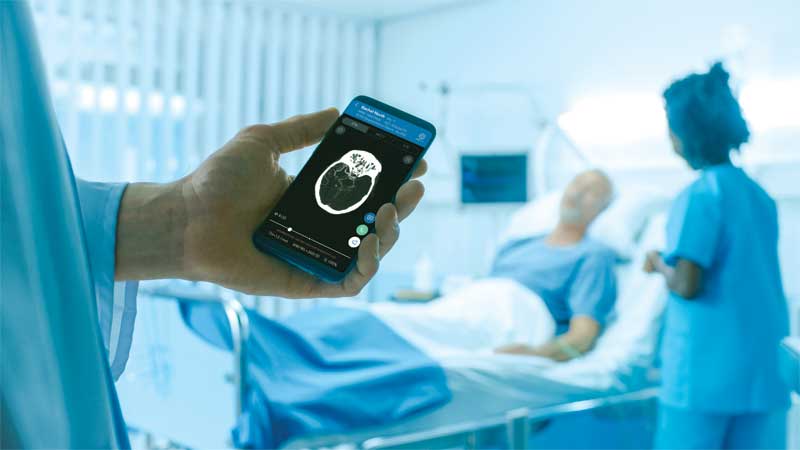
Top 10 Thrombectomy Center
Less than a decade ago, the treatment of stroke – specifically large-vessel occlusions – experienced a breakthrough. Instrumentation and technology evolved that allowed surgeons to send tiny tubes inserted at the neck, legs or arms up an artery to the blood clot and physically remove it, immediately restoring blood flow.
Previously – and in most cases still – such strokes were addressed by a drug, alteplase.
Health First leaders pounced. The health system hired a specialist, built a dedicated operating room and, most importantly, put together a crack team of stroke care operators and outfitted them with the tools and technology to speed Brevard residents struck by an LVO into surgery and on the road to recovery.
“We were able to start our program incredibly quickly,” Dr. Shaheen says. “We became the 14th thrombectomy center in the country, and our volumes have been incredibly high ever since.”
The onboarding of Viz LVO is the health system’s latest time-shaving investment.
Health First Has An App For That
Stroke is a leading cause of long-term disability and death, but Holmes Regional is a Center of Excellence for stroke care in part because of its response times. An ischemic stroke (87% of all strokes) triggers automatic notifications over the Viz.ai app to on-call stroke physicians who review 3D brain and vascular images from their phones.
It shortens a hospital’s “door-to-needle” time – the time it takes for a brain-saving operation to begin. In a real-world study across more than 100 hospitals, Viz LVO saved 66 minutes of door-to-needle time.
“We have an unbelievable neurosciences team, and one way to make the most of that is to get patients to them as quickly as we can,” said Stephen Wright, System Vice President, Health First.
“This partnership with Viz.ai is our way of cutting the distance between our life-saving specialists and those in our community who need that stroke care without a minute’s delay.”

A Family History
Shalayma Cruz’s journey through stroke care became a path of discovery. Her father had suffered several strokes before succumbing to one at 70 years old.
“When my dad died of stroke, I thought it was because of his eating, his bad cholesterol, that kind of thing. I never thought I’d inherit a gene that would cause me to have a stroke at a young age.”
Like many people, Shalayma has a congenital heart defect called a patent foramen ovale (PFO). More blood clots enter her bloodstream through the heart because of it. But she also has a genetic mutation that makes her more likely to get harmful blood clots. She did not know it before her stay at Holmes Regional. Now, at least, she has answers. She’s taken her son to a geneticist to see if he has the same markers.
More than this, her recovery is dramatic – world’s better than her father’s.
“The technology back then wasn’t as great. He lost all his movement,” she says. “Now, with me, when I compare our outcomes, it doesn’t feel like the same thing.”
“A case like Ms. Cruz’s, it’s very rewarding,” Dr. Shaheen says. “This job exacts an emotional toll, and when someone like Ms. Cruz walks into your clinic, doing so well, speaking without impairment, it makes the burden that you’re carrying easier to bear, OK?”
Having received a thrombectomy, on a timeline measured in minutes, not hours, Shalayma says her stroke won’t impact her dreams for herself.
“I’m hoping, in time, my recovery will be so complete it will all go away.”
If you or a loved one is concerned about stroke and would like to assess the risk, visit HF.org/Stroke and take a quick Stroke Risk Quiz.


